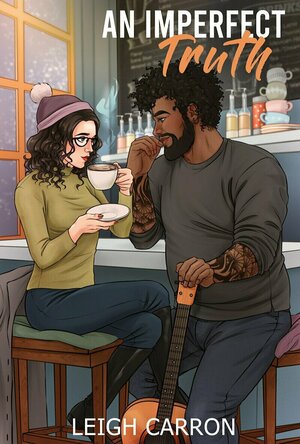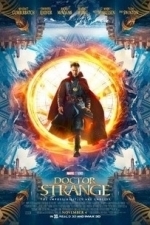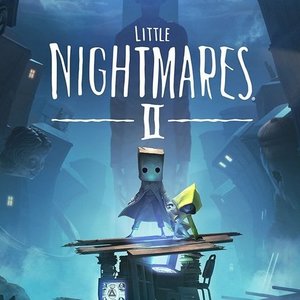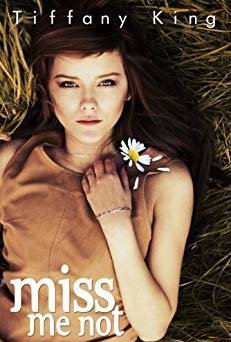Search
Bob Mann (459 KP) rated Doctor Strange (2016) in Movies
Sep 29, 2021
Well multiversed.
In the latest Marvel film (notably now available with the snazzy new Marvel production logo at the start) Benedict Cumberbatch (“Sherlock”, “Star Trek Into Darkness”) plays the titular hero: a neurosurgeon with exceptional skills, an encyclopedic knowledge of discographies and an ego to rival Donald Trump.
After an horrific car crash (topically addressing the dangers of mobile use while driving) Strange loses the ability to practice his craft, and descends into a spiral of self-pity and despair. Finding a similar soul, Jonathan Pangborn (Benjamin Bratt, “24: Live Another Day”) who’s undergone a miracle cure, Strange travels to Katmandu in search of similar salvation where he is trained in spiritual control by “The Ancient One” (Tilda Swinton, “Hail Caesar”, “The Grand Budapest Hotel”) ably supported by her assistant Mordo (Chiwetel Ejiofor, “12 Years a Slave”) and librarian Wong (Benedict Wong, “The Martian”). So far so “Batman Begins”.
As always in these films though there is also a villain, in this case a rogue former pupil turned to the dark side (have we not been here before Anakin?) called Kaecilius (Mads Mikkelssen, “Quantum of Solace”). The world risks total destruction from spiritual attack (“…the Avengers handle the physical threats…” – LOL) and the team stand together to battle Kaecilius’s attempts to open a portal (“Zuuuul”) and ‘let the right one in’.
Followers of this blog will generally be aware that I am not a great fan of the Marvel and DC universes in general. However, there is a large variation in the style of films dished out by the studios ranging from the pompously full-of-themselves films at the “Batman vs Superman” (bottom) end to the more light-hearted (bordering on “Kick-Ass-style”) films at the “Ant Man” (top) end. Along this continuum I would judge “Doctor Strange” to be about a 7: so it is a lot more fun than I expected it to be.
The film is largely carried by Cumberbatch, effecting a vaguely annoying American accent but generally adding acting credence to some pretty ludicrous material. In particular he milks all the comic lines to maximum effect, leading to some genuinely funny moments: yes, the comedy gold extends past Ejiofor’s (very funny) wi-fi password line in the trailer.
Cumberbatch also has the range to convincingly play the fall of the egocentric Strange: his extreme unpleasantness towards his beleaguered on/off girlfriend (the ever-reliable Rachel McAdams (“Sherlock Holmes”)) drew audible gasps of shock from a few of the ‘Cumberbitches’ in my screening. (As I’m writing this on November 9th, the day of Trumpagedden, we might have already found a candidate able to play the new President elect!)
In fact, the whole of the first half of the film is a delight: Strange’s decline; effective Nepalese locations; a highly entertaining “training” sequence; and Cumberbatch and Swinton sparking off each other beautifully.
Where the film pitches downhill is where it gets too “BIG”: both in a hugely overblown New York morphing sequence (the – remember – human heroes suffer skyscraper-level falls without injury) and where (traditionally) a cosmic being gets involved and our puny heroes have to defend earth against it. Once again we have a “big CGI thing” centre screen with the logic behind the (long-term) defeating of the “big CGI thing” little better than that behind the defeat of the “big CGI thing” in “Batman vs Superman” (but without Gal Gadot’s legs unfortunately to distract the male audience).
Music is by Michael Giacchino, and his suitably bombastic Strange theme is given a very nice reworking over the end titles. By the way, for those who are interested in “Monkeys” (see glossary) there is a scene a few minutes into the credits featuring Strange and one of the Avengers (fairly pointless) and a second right at the end of the credits featuring Pangborn and Mordo setting up (not very convincingly I must say) the potential villain for Strange 2.
Not Shakespeare, but still an enjoyable and fun night out at the movies and far better than I was expecting.
After an horrific car crash (topically addressing the dangers of mobile use while driving) Strange loses the ability to practice his craft, and descends into a spiral of self-pity and despair. Finding a similar soul, Jonathan Pangborn (Benjamin Bratt, “24: Live Another Day”) who’s undergone a miracle cure, Strange travels to Katmandu in search of similar salvation where he is trained in spiritual control by “The Ancient One” (Tilda Swinton, “Hail Caesar”, “The Grand Budapest Hotel”) ably supported by her assistant Mordo (Chiwetel Ejiofor, “12 Years a Slave”) and librarian Wong (Benedict Wong, “The Martian”). So far so “Batman Begins”.
As always in these films though there is also a villain, in this case a rogue former pupil turned to the dark side (have we not been here before Anakin?) called Kaecilius (Mads Mikkelssen, “Quantum of Solace”). The world risks total destruction from spiritual attack (“…the Avengers handle the physical threats…” – LOL) and the team stand together to battle Kaecilius’s attempts to open a portal (“Zuuuul”) and ‘let the right one in’.
Followers of this blog will generally be aware that I am not a great fan of the Marvel and DC universes in general. However, there is a large variation in the style of films dished out by the studios ranging from the pompously full-of-themselves films at the “Batman vs Superman” (bottom) end to the more light-hearted (bordering on “Kick-Ass-style”) films at the “Ant Man” (top) end. Along this continuum I would judge “Doctor Strange” to be about a 7: so it is a lot more fun than I expected it to be.
The film is largely carried by Cumberbatch, effecting a vaguely annoying American accent but generally adding acting credence to some pretty ludicrous material. In particular he milks all the comic lines to maximum effect, leading to some genuinely funny moments: yes, the comedy gold extends past Ejiofor’s (very funny) wi-fi password line in the trailer.
Cumberbatch also has the range to convincingly play the fall of the egocentric Strange: his extreme unpleasantness towards his beleaguered on/off girlfriend (the ever-reliable Rachel McAdams (“Sherlock Holmes”)) drew audible gasps of shock from a few of the ‘Cumberbitches’ in my screening. (As I’m writing this on November 9th, the day of Trumpagedden, we might have already found a candidate able to play the new President elect!)
In fact, the whole of the first half of the film is a delight: Strange’s decline; effective Nepalese locations; a highly entertaining “training” sequence; and Cumberbatch and Swinton sparking off each other beautifully.
Where the film pitches downhill is where it gets too “BIG”: both in a hugely overblown New York morphing sequence (the – remember – human heroes suffer skyscraper-level falls without injury) and where (traditionally) a cosmic being gets involved and our puny heroes have to defend earth against it. Once again we have a “big CGI thing” centre screen with the logic behind the (long-term) defeating of the “big CGI thing” little better than that behind the defeat of the “big CGI thing” in “Batman vs Superman” (but without Gal Gadot’s legs unfortunately to distract the male audience).
Music is by Michael Giacchino, and his suitably bombastic Strange theme is given a very nice reworking over the end titles. By the way, for those who are interested in “Monkeys” (see glossary) there is a scene a few minutes into the credits featuring Strange and one of the Avengers (fairly pointless) and a second right at the end of the credits featuring Pangborn and Mordo setting up (not very convincingly I must say) the potential villain for Strange 2.
Not Shakespeare, but still an enjoyable and fun night out at the movies and far better than I was expecting.
BankofMarquis (1832 KP) rated Paddington 2 (2017) in Movies
Feb 3, 2019
Wonderful, whimsical film for kids and adults alike
As I was perusing various "Top Films of 2018" lists, one surprising film kept showing up on these lists, so I thought I'd better check it out.
And I'm glad I did for PADDINGTON 2 is a charming family film that entranced me from beginning to end with wonderful performances and a charm and whimsy that hooked me from start to finish.
A follow-up to the moderate 2014 hit (based on the beloved children's books series) about a Peruvian bear that heads to 19th Century London seeking adventure - and finds a family - PADDINGTON 2 follows said Bear as he is caught up in a robbery and is mistakenly jailed for the crime. Can Paddington make friends with the burly inmates in the prison? Can the Brown family help find the true perpetrator of the crime and help spring Paddington? Can faith and love triumph in a time of skepticism and darkness?
It's a family film, what do you think?
The joy in this film is in the telling - and Paul King (returning as Director/Writer) does a wonderful job telling a joyous, family-friendly story without diving into sacrine-ness (is that a word? It is now) and schmaltz. He tells the story with a sly wink in his eye and dives deep into whimsical detail of late 19th century London - a London racing full throttle into the steam age. There is a light cyber-punk sensibility to the proceedings and this works wonderfully well.
As you would expect, King does a nice job getting the actors to click into the sensibilities and style of this film. Ben Wishaw is back as the voice of Paddington - and he is perfectly cast. Wishaw has a naivete and sense of wonder to his voice that serves the Paddington character well. Jim Broadbent, Hugh Bonneville, Sally Hawkins and Julie Walters all reprise their roles - in winning fashion. But it is the newcomers that shine. Brendan Gleeson shows off some comic chops as main prison bad guy "Knuckles" McGinty who forms an unlikely friendship/partnership with Paddington and, especially Hugh Grant as vain, egotistical actor Phoenix Buchanan. I won't spoil the antics of Grant's character but I have a feeling that Mr. Grant had as much fun bringing this character to screen as I did watching him.
Two final things - the finale really works for me as King sets up each character's "special skill" at the beginning of the film that they will need to bring to bear (no pun intended) during the action at the end. To often, character's and character threads are set up at the beginning of a film only to be abandoned by the end, so it is satisfying to me when King sets up items at the beginning of this film and then PAYS THEM OFF at the end.
And, finally, STAY THROUGH THE CREDITS. There is a scene in the credits that is as good as anything that is in the film. I won't spoil the fun for you, but want you to know about this so you won't miss it.
A wonderful, whimsical, time at the movies. If you have kids (5,6,7 years old), this is a MUST SEE. For the rest of you, if you're looking for fun escape from the world, this film will do it.
Letter Grade A-
8 (out of 10) stars and you can take that to the Bank(ofMarquis)
And I'm glad I did for PADDINGTON 2 is a charming family film that entranced me from beginning to end with wonderful performances and a charm and whimsy that hooked me from start to finish.
A follow-up to the moderate 2014 hit (based on the beloved children's books series) about a Peruvian bear that heads to 19th Century London seeking adventure - and finds a family - PADDINGTON 2 follows said Bear as he is caught up in a robbery and is mistakenly jailed for the crime. Can Paddington make friends with the burly inmates in the prison? Can the Brown family help find the true perpetrator of the crime and help spring Paddington? Can faith and love triumph in a time of skepticism and darkness?
It's a family film, what do you think?
The joy in this film is in the telling - and Paul King (returning as Director/Writer) does a wonderful job telling a joyous, family-friendly story without diving into sacrine-ness (is that a word? It is now) and schmaltz. He tells the story with a sly wink in his eye and dives deep into whimsical detail of late 19th century London - a London racing full throttle into the steam age. There is a light cyber-punk sensibility to the proceedings and this works wonderfully well.
As you would expect, King does a nice job getting the actors to click into the sensibilities and style of this film. Ben Wishaw is back as the voice of Paddington - and he is perfectly cast. Wishaw has a naivete and sense of wonder to his voice that serves the Paddington character well. Jim Broadbent, Hugh Bonneville, Sally Hawkins and Julie Walters all reprise their roles - in winning fashion. But it is the newcomers that shine. Brendan Gleeson shows off some comic chops as main prison bad guy "Knuckles" McGinty who forms an unlikely friendship/partnership with Paddington and, especially Hugh Grant as vain, egotistical actor Phoenix Buchanan. I won't spoil the antics of Grant's character but I have a feeling that Mr. Grant had as much fun bringing this character to screen as I did watching him.
Two final things - the finale really works for me as King sets up each character's "special skill" at the beginning of the film that they will need to bring to bear (no pun intended) during the action at the end. To often, character's and character threads are set up at the beginning of a film only to be abandoned by the end, so it is satisfying to me when King sets up items at the beginning of this film and then PAYS THEM OFF at the end.
And, finally, STAY THROUGH THE CREDITS. There is a scene in the credits that is as good as anything that is in the film. I won't spoil the fun for you, but want you to know about this so you won't miss it.
A wonderful, whimsical, time at the movies. If you have kids (5,6,7 years old), this is a MUST SEE. For the rest of you, if you're looking for fun escape from the world, this film will do it.
Letter Grade A-
8 (out of 10) stars and you can take that to the Bank(ofMarquis)
Chris Sawin (602 KP) rated the PlayStation 4 version of Little Nightmares II in Video Games
Apr 9, 2021
The incredible story. (3 more)
Great visuals and interactions with items both in the foreground and background.
Brilliant score.
Its gameplay and controls are mostly entertaining.
Some puzzles are difficult to solve without cheating. (2 more)
It is ridiculously difficult at times. Expect to die. A lot.
It is longer than the first game, but still feels short.
A Visually Creepy Masterpiece with a few Minor Flaws
Little Nightmares II is a vast improvement over the original game that still has a few flaws that could be ironed out in a sequel. The first game was creepy and a lot of fun, but it felt incredibly short. It was the type of game you bought, played through quickly, and traded in because it didn’t seem to have much replay value. Although I'm just now reading about the DLC for the game and the hidden ending to Little Nightmares II, but I digress.
Little Nightmares II has you playing as Mono, a young boy that wears a paper bag over his head; not unlike Ugly Bob from the Terrance & Phillip In Not Without My Anus on the first episode of the second season of South Park. The game is a lot like Limbo with more color. Mono is thrown into a world of bleak surroundings and even darker outcomes. Thankfully, you have Six from the previous game to assist you. However, Little Nightmares II is only one player which seems like a missed opportunity for this to be a two player game.
The format of each level is pretty similar other than the last one. You typically flee a major boss character that chases you while you search for the key to a locked door. Stealth is involved throughout the game. If you make too much noise, run too fast, or walk into the light from the shadows in view of a boss’s eyesight then you get eaten or killed. You use your surroundings to thwart the boss, which usually involves killing them yourself. The chase element is the same near the end of the game, but you're thrown into more surreal and dreamlike surroundings.
It does seem like you interact more with the background in comparison to the previous game. You can almost always run into the background on any level. It may result in you falling off a cliff, but that kind of exploration ability in a side-scroller is really cool. I played Little Nightmares II on a PS5 despite the game being for PS4. What’s cool is you can feel Mono’s heartbeat through the controller when situations are tense and seeing little dust particles float through the air as you explore is a nice addition.
The highlight of the game is the story. The world Little Nightmares and Little Nightmares II takes place in is so deliciously dreary with what feels like no hope for survival. You root for Mono and Six to stay together as friends, but that outcome seems less and less likely as the game progresses. You also gain powers as Mono later on; the most noteworthy one being able to use televisions as portals. All of the major bosses are fantastically terrifying, as well. You’re chased by a hunter with a shotgun, a teacher with a stretchy neck and an appetite, twitchy mannequins that only move in darkness, viewers obsessed with television, and The Thin Man who kidnaps Six.
The game can be frustrating at times. Not only is it difficult and will result in you dying over and over again, but certain puzzles are almost impossible to solve without looking up how to solve them first.
According to the internet, it seems as though this may be the end of the Little Nightmares franchise since the creators are moving on to something new and will focus less on sequels in the future. It’s unfortunate since Dave Mervik’s writing with the story of the game is so well done and the game as a whole is mostly very fun and entertaining to play while providing legitimate thrills and chills. Tobias Lilja’s musical score is a frightening delight. However, despite Little Nightmare II’s flaws, it’ll be impossible not to be invested in anything Tarsier Studios is involved with in the years to come.
Little Nightmares II has you playing as Mono, a young boy that wears a paper bag over his head; not unlike Ugly Bob from the Terrance & Phillip In Not Without My Anus on the first episode of the second season of South Park. The game is a lot like Limbo with more color. Mono is thrown into a world of bleak surroundings and even darker outcomes. Thankfully, you have Six from the previous game to assist you. However, Little Nightmares II is only one player which seems like a missed opportunity for this to be a two player game.
The format of each level is pretty similar other than the last one. You typically flee a major boss character that chases you while you search for the key to a locked door. Stealth is involved throughout the game. If you make too much noise, run too fast, or walk into the light from the shadows in view of a boss’s eyesight then you get eaten or killed. You use your surroundings to thwart the boss, which usually involves killing them yourself. The chase element is the same near the end of the game, but you're thrown into more surreal and dreamlike surroundings.
It does seem like you interact more with the background in comparison to the previous game. You can almost always run into the background on any level. It may result in you falling off a cliff, but that kind of exploration ability in a side-scroller is really cool. I played Little Nightmares II on a PS5 despite the game being for PS4. What’s cool is you can feel Mono’s heartbeat through the controller when situations are tense and seeing little dust particles float through the air as you explore is a nice addition.
The highlight of the game is the story. The world Little Nightmares and Little Nightmares II takes place in is so deliciously dreary with what feels like no hope for survival. You root for Mono and Six to stay together as friends, but that outcome seems less and less likely as the game progresses. You also gain powers as Mono later on; the most noteworthy one being able to use televisions as portals. All of the major bosses are fantastically terrifying, as well. You’re chased by a hunter with a shotgun, a teacher with a stretchy neck and an appetite, twitchy mannequins that only move in darkness, viewers obsessed with television, and The Thin Man who kidnaps Six.
The game can be frustrating at times. Not only is it difficult and will result in you dying over and over again, but certain puzzles are almost impossible to solve without looking up how to solve them first.
According to the internet, it seems as though this may be the end of the Little Nightmares franchise since the creators are moving on to something new and will focus less on sequels in the future. It’s unfortunate since Dave Mervik’s writing with the story of the game is so well done and the game as a whole is mostly very fun and entertaining to play while providing legitimate thrills and chills. Tobias Lilja’s musical score is a frightening delight. However, despite Little Nightmare II’s flaws, it’ll be impossible not to be invested in anything Tarsier Studios is involved with in the years to come.

Alarm Clock for Me.
Utilities and Weather
App
Wake up and go to sleep to your favorite music, get your own collection of exclusive designer...
Gareth von Kallenbach (980 KP) rated Zombieland: Double Tap (2019) in Movies
Oct 17, 2019
It is hard to believe it has been ten years since audiences were introduced to the hysterical yet violent Post-Apocalypse world of Zombieland; but thankfully the crew is back again with the highly enjoyable “Zombieland: Double Tap”.
The story begins with Columbus (Jesse Eisenberg), bringing the audience up to speed on what has happened since the last film. The Zombies have evolved into different classes of abilities and Columbus and his ersatz family have taken up residence in The White House.
Columbus and Wichita (Emma Stone) are still dating; well at least as best as one can do in a Zombie Apocalypse which is painfully short on options. This situation does not seem to bother Tallahassee (Woody Harrelson), as he is happy to work on his loaded vehicle dubbed “The Beast” but for Little Rock (Abigail Breslin), the situation has become intolerable.
Little Rock is eager to find someone to have a relationship with and when her frustrations combine with Wichita’s insecurities; the girls take off leaving the men to fend for themselves.
While Tallahassee has no issues with this, Columbus is a moping mess and even a trip to the local mall cannot lighten his mood. Things change when they meet the ditzy and clueless Madison (Zoey Deutch); who steals her scenes with her Clueless Pop Culture Princess who is as oblivious to their situation as a person can be.
When Wichita returns to tell them that Little Rock has run off with a guy she met, the crew load up and take to the road to save the day but are blissfully unaware of the new dangers waiting for them.
This is the rare sequel that is as good if not better than the original. The cast works very well with one another and the introduction of new characters brought some additional comedy to the film as well as enhancement to the action sequences.
While the film is at times very gory; it is done in a humorous way that balances the dangers the characters are in with a wink and smile to let the audience know that this is still an Action/Comedy that is light on the darkness and big on the levity.
The film has some great continuity with the original film without repeating itself as Columbus’s rules for survival still pop up when they are used and we also get some hysterical new updates to the coveted Zombie Kill of the Week.
Director Ruben Fleischer knows what audiences want and does a great job giving them more of what he gave them in the first film without being gratuitous or heavy handed with the material.
The new cast works well with the returning players especially Rosario Dawson and the previously mentioned Zoey Deutch who fit seamlessly into the comedic Zombie mayhem.
You will want to make sure to stay into the credits for a fantastic bonus scene which puts a great capper on the film which was one of the best times I have had at the movies in recent years and one of the better movies of 2019.
Hopefully this is not the last outing for the crew as I would love to see further adventures in Zombieland but hopefully we will not have to wait 10 years for the next chapter.
4 stars out of 5
The story begins with Columbus (Jesse Eisenberg), bringing the audience up to speed on what has happened since the last film. The Zombies have evolved into different classes of abilities and Columbus and his ersatz family have taken up residence in The White House.
Columbus and Wichita (Emma Stone) are still dating; well at least as best as one can do in a Zombie Apocalypse which is painfully short on options. This situation does not seem to bother Tallahassee (Woody Harrelson), as he is happy to work on his loaded vehicle dubbed “The Beast” but for Little Rock (Abigail Breslin), the situation has become intolerable.
Little Rock is eager to find someone to have a relationship with and when her frustrations combine with Wichita’s insecurities; the girls take off leaving the men to fend for themselves.
While Tallahassee has no issues with this, Columbus is a moping mess and even a trip to the local mall cannot lighten his mood. Things change when they meet the ditzy and clueless Madison (Zoey Deutch); who steals her scenes with her Clueless Pop Culture Princess who is as oblivious to their situation as a person can be.
When Wichita returns to tell them that Little Rock has run off with a guy she met, the crew load up and take to the road to save the day but are blissfully unaware of the new dangers waiting for them.
This is the rare sequel that is as good if not better than the original. The cast works very well with one another and the introduction of new characters brought some additional comedy to the film as well as enhancement to the action sequences.
While the film is at times very gory; it is done in a humorous way that balances the dangers the characters are in with a wink and smile to let the audience know that this is still an Action/Comedy that is light on the darkness and big on the levity.
The film has some great continuity with the original film without repeating itself as Columbus’s rules for survival still pop up when they are used and we also get some hysterical new updates to the coveted Zombie Kill of the Week.
Director Ruben Fleischer knows what audiences want and does a great job giving them more of what he gave them in the first film without being gratuitous or heavy handed with the material.
The new cast works well with the returning players especially Rosario Dawson and the previously mentioned Zoey Deutch who fit seamlessly into the comedic Zombie mayhem.
You will want to make sure to stay into the credits for a fantastic bonus scene which puts a great capper on the film which was one of the best times I have had at the movies in recent years and one of the better movies of 2019.
Hopefully this is not the last outing for the crew as I would love to see further adventures in Zombieland but hopefully we will not have to wait 10 years for the next chapter.
4 stars out of 5
Leanne Crabtree (480 KP) rated Miss Me Not in Books
Sep 3, 2019
Note: This has been on my Kindle for years--literally! I've decided every so often when there's not a book I've bought that I'm just dying to read that I'll start reading my backlog of books from the earliest bought. This was #1 - from 2013. I'm not doing bad, I only have one more book from 2013 before I start the ones from 2014. Yay!
*-*-*-*-*
This covers some rather dark topics like suicide and physical abuse. On the first page we learn of a student's suicide and Madison's feelings about it. And then the fact that she has a sort of suicide pact with her only friend. It's quite a punch to the gut that these 17 year olds feel so low due to family situations that they want to end things.
Madison had a very unconventional childhood with parents who took no notice of her at all and in an effort to gain any sort of attention from them she acted out in the past until the unthinkable happened when she was just 13. I understand how stuff like that can warp you when it happens at such a young age.
Then a ray of light appears in the form of Dean--all round good guy. He's been asked to tutor her so she doesn't flunk a class. He's determined to be her friend after watching her for years and seeing her "fade into the background" behaviour. Things progress from friendship into romance over time and we get a rather sweet romance between Dean and Madison. He's very protective of her.
Of course, things don't always go the way you want and someone close to Madison commits suicide throwing her back into the darkness of grief. Luckily, she now has a strong support system in place with Dean and his family and they manage to keep her grounded.
I thought it ended a little abruptly but it was a sweet young adult romance that covered some hard hitting topics.
Another note: Suicide does seem to be a big issue in teenagers around the world and this book does a good job of highlighting it. It doesn't seem fair to me for teens to be that low that they take their own lives. They've barely started living and they ready to die already? That's not right. I've had a few good cries while reading this.
*-*-*-*-*
This covers some rather dark topics like suicide and physical abuse. On the first page we learn of a student's suicide and Madison's feelings about it. And then the fact that she has a sort of suicide pact with her only friend. It's quite a punch to the gut that these 17 year olds feel so low due to family situations that they want to end things.
Madison had a very unconventional childhood with parents who took no notice of her at all and in an effort to gain any sort of attention from them she acted out in the past until the unthinkable happened when she was just 13. I understand how stuff like that can warp you when it happens at such a young age.
Then a ray of light appears in the form of Dean--all round good guy. He's been asked to tutor her so she doesn't flunk a class. He's determined to be her friend after watching her for years and seeing her "fade into the background" behaviour. Things progress from friendship into romance over time and we get a rather sweet romance between Dean and Madison. He's very protective of her.
Of course, things don't always go the way you want and someone close to Madison commits suicide throwing her back into the darkness of grief. Luckily, she now has a strong support system in place with Dean and his family and they manage to keep her grounded.
I thought it ended a little abruptly but it was a sweet young adult romance that covered some hard hitting topics.
Another note: Suicide does seem to be a big issue in teenagers around the world and this book does a good job of highlighting it. It doesn't seem fair to me for teens to be that low that they take their own lives. They've barely started living and they ready to die already? That's not right. I've had a few good cries while reading this.
Hazel (1853 KP) rated Touching the Rock: An Experience of Blindness (Notes on Blindness Film Tie-in) in Books
May 23, 2017
Eye-opener (if you pardon the pun)
I received this book for free through Goodreads First Reads.
It is not often a blind man writes a book, and “write” is a word used due to the lack of a better. John M. Hull gradually lost his sight, registering as blind in 1980, a couple of days before the birth of his son. Although anticipating the event, John struggled to come to terms with his new circumstances and adjust to a new way of living. From 1983 through to 1985, John recorded his thoughts on tape, in diary form, as a way to ascertain and understand his predicament. Originally titled Touching the Rock (1990), John’s book has been republished as Notes on Blindness after the release of the film of the same name.
Initially, John made recordings every day, dictating the everyday occurrences he encountered. Amazingly, despite his disability, John was able to continue as a university lecturer and delve deeper into the world of theology. The way John thinks things through as he speaks reflects his academic abilities. Although he may have despaired at the thoughts of not being able to see his children, he had a fairly positive outlook on life.
John’s thought capacity and religious ideology are evident in his assemblage of diary entries. As a blind person, he learns to see the world in an alternative way, and often feels closer to God as a result. Through these new experiences, John begins to see the light despite the darkness.
The metaphorical descriptions of blindness help the reader to understand the horror and difficulties not being able to see visually provokes. This is heightened by John’s recordings of the bad dreams he often suffers, in which he is able to see. His fixations on these dreams are assumedly a fascination with visual imagery, which he does not have access to in his waking life.
It is hard not feel sorry for John as he reports the conversations he has with his young children. The effort to communicate and play with them is far greater than a seeing parent. Remarkably, as John begins to adjust to his new lifestyle, his children take the situation in their stride.
Notes on Blindness is also an educational narrative for those without sight problems. John explains the things other people, in attempts to be helpful, do that result in making things far more confusing for John as he tries to navigate his way from one place to another. Despite what most think, blind people are fairly good at walking routes they are familiar with, and, with the help of a stick, can safely travel through new areas. Once people start shouting instructions, it is difficult to pay attention to the location and listen to everyone else at the same time.
John’s voice is extremely articulate, and his thoughts profound, which may suggest heavy editing when compiling the recordings into written form. However, as he is an academician, his eloquence of speech does not feel forced or faked.
Notes on Blindness remains the same as the original publication but with the added inclusion of an introduction by Cathy Rentzenbrink, and an epilogue by his wife Marilyn, written in 2016, a year after his death. These, the latter in particular, provide an insight into how John’s blindness affected those around him and emphasises what a truly remarkable man he was.
Of the many memoirs available on bookshelves today, Notes on Blindness is a truly unique publication. It is not telling a story, or recounting a well-lived life, but gives great insight into the world of the blind. As John’s thoughts were not originally recorded with intention of being available to everyone, they are all the more personal and honest, provoking emotion and providing the reader with a new way of seeing. It is a book that will stay with you for a very long time.
It is not often a blind man writes a book, and “write” is a word used due to the lack of a better. John M. Hull gradually lost his sight, registering as blind in 1980, a couple of days before the birth of his son. Although anticipating the event, John struggled to come to terms with his new circumstances and adjust to a new way of living. From 1983 through to 1985, John recorded his thoughts on tape, in diary form, as a way to ascertain and understand his predicament. Originally titled Touching the Rock (1990), John’s book has been republished as Notes on Blindness after the release of the film of the same name.
Initially, John made recordings every day, dictating the everyday occurrences he encountered. Amazingly, despite his disability, John was able to continue as a university lecturer and delve deeper into the world of theology. The way John thinks things through as he speaks reflects his academic abilities. Although he may have despaired at the thoughts of not being able to see his children, he had a fairly positive outlook on life.
John’s thought capacity and religious ideology are evident in his assemblage of diary entries. As a blind person, he learns to see the world in an alternative way, and often feels closer to God as a result. Through these new experiences, John begins to see the light despite the darkness.
The metaphorical descriptions of blindness help the reader to understand the horror and difficulties not being able to see visually provokes. This is heightened by John’s recordings of the bad dreams he often suffers, in which he is able to see. His fixations on these dreams are assumedly a fascination with visual imagery, which he does not have access to in his waking life.
It is hard not feel sorry for John as he reports the conversations he has with his young children. The effort to communicate and play with them is far greater than a seeing parent. Remarkably, as John begins to adjust to his new lifestyle, his children take the situation in their stride.
Notes on Blindness is also an educational narrative for those without sight problems. John explains the things other people, in attempts to be helpful, do that result in making things far more confusing for John as he tries to navigate his way from one place to another. Despite what most think, blind people are fairly good at walking routes they are familiar with, and, with the help of a stick, can safely travel through new areas. Once people start shouting instructions, it is difficult to pay attention to the location and listen to everyone else at the same time.
John’s voice is extremely articulate, and his thoughts profound, which may suggest heavy editing when compiling the recordings into written form. However, as he is an academician, his eloquence of speech does not feel forced or faked.
Notes on Blindness remains the same as the original publication but with the added inclusion of an introduction by Cathy Rentzenbrink, and an epilogue by his wife Marilyn, written in 2016, a year after his death. These, the latter in particular, provide an insight into how John’s blindness affected those around him and emphasises what a truly remarkable man he was.
Of the many memoirs available on bookshelves today, Notes on Blindness is a truly unique publication. It is not telling a story, or recounting a well-lived life, but gives great insight into the world of the blind. As John’s thoughts were not originally recorded with intention of being available to everyone, they are all the more personal and honest, provoking emotion and providing the reader with a new way of seeing. It is a book that will stay with you for a very long time.

An Imperfect Truth
Book
Chaz can make a perfect latte, but can he handle her imperfect truth? Alexandra Townsen has spent...
Contemporary MF Romance Meet Cute Found Family Interracial Romance







